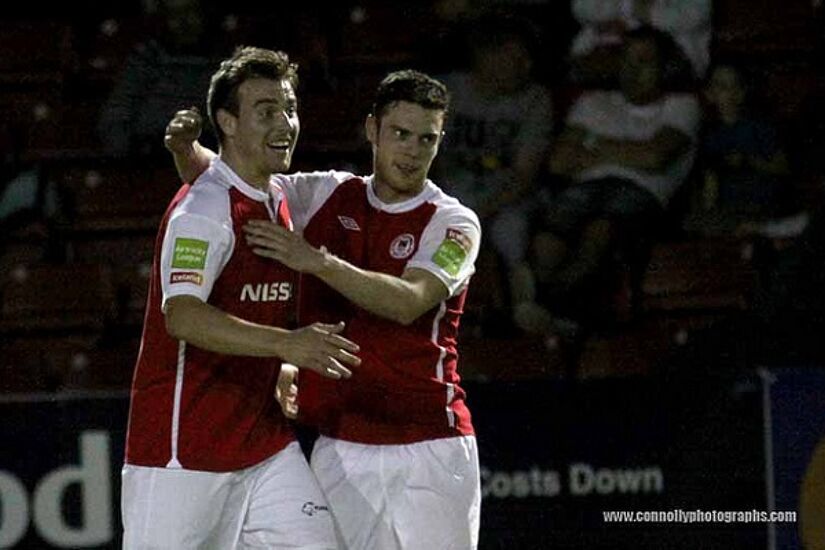Education: Life Beyond Soccer #22: John Russell

Credit: Darragh Connolly (ETPhotos)
John Russell is one of the most well-known midfielders in the League of Ireland over the past decade.
Having signed full time with Galway United for the 2007 season, the Moycullen native spent three seasons with the Tribesmen before moving north up the west coast in 2010 to join Paul Cook’s Sligo Rovers.
While at the Showgrounds he won back-to-back FAI Cup medals and was persuaded by Liam Buckley to join St Patrick’s Athletic for the 2012 season.
During his two season tenure at Inchicore, Russell was provided with the opportunity to use the commerce degree he had obtained at NUIG prior to committing to a professional career under Tony Cousins at Galway United.
Similar to Conan Byrne at Sporting Fingal (as mentioned in a previous interview), Russell worked for the club in the community alongside his on-field career.
However, unlike the Pats winger, Russell’s efforts were to be concentrated on developing community links by bringing the club into local schools.
Russell designed a six-week programme which saw coaching, nutrition and Saints players enter local schools, where pupils having the opportunity to interact with their heroes as well as getting the opportunity to grace the Richmond Park turf themselves.
Speaking to extratime.ie, Russell talked about how the aspiration was: “to create memorable experiences for students as well as aiding their personal development and confidence through the question and answer sessions as well as creating projects and food diaries.”
In relation to developing greater links between educational institutions – from primary to third level – Russell believes the onus is on the club to create initiatives which suit their own needs.
To achieve this, the current Westport United manager thinks clubs need to employ full time staff to develop and maintain structured community links.
He referenced the community work being carried out by Bohemians and cited the established relationship between Maynooth University and Pats, as well as the fledging partnership between Shelbourne and Dublin City University, as models for other clubs to look at.
Other options suggested included the timing of some training sessions in the evening to suit college students and underage players in the youth section [currently carried out by Galway United, mentioned in an article with Alan Murphy] or allowing college students to enjoy work experience sessions in the club.
Experience, including an 18-month stint coaching at DCU, has taught Russell that “players need to be planning early for their future and they need an outlet away from the game at times to give them another focus.”
He adds: “The focus should be on education and football and players given the choice when clubs have educational pathways in place.
“The standard of college football is getting higher and higher and this will, in turn, improve the standard of the league.”
Since this conversation, the Irish Colleges and Universities team have gone on to record a maiden friendly victory over a France side ranked second in the world.
“The link between sport and education is key and it’s important to keep players involved in developing their off-field education.
“One option could involve placing certain players on work experience with the clubs main sponsors in areas they have an interest in.”
On the football side, he added: “It’s about putting the best coaches into clubs with long term player development programmes, taking an holistic approach and using effective succession planning to ensure a steady stream to the first team.
“I’ve been over to academies such as PSV, Southampton, Derby and Celtic, who carry our tremendous work when it comes to player development and you can do the same here with the right people.
“You don’t need a massive budget. Heads of youth development can have a massive impact by liaising with educational institutions with regards to a player’s journey on and off the field.’
Both areas of a player’s development are equally important and Russell’s vision could help provide a greater level of pastoral care for the young player and help them develop as a person, player and student, preparing them for life in the future.
This, in effect, is the purpose of education and could be of tremendous benefit to players, clubs and the league as a whole.

